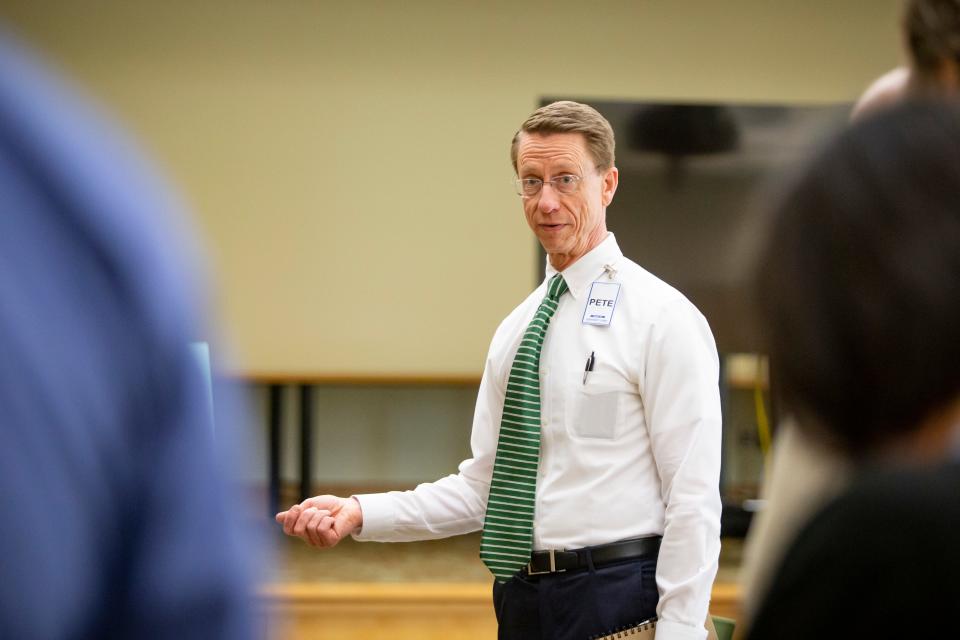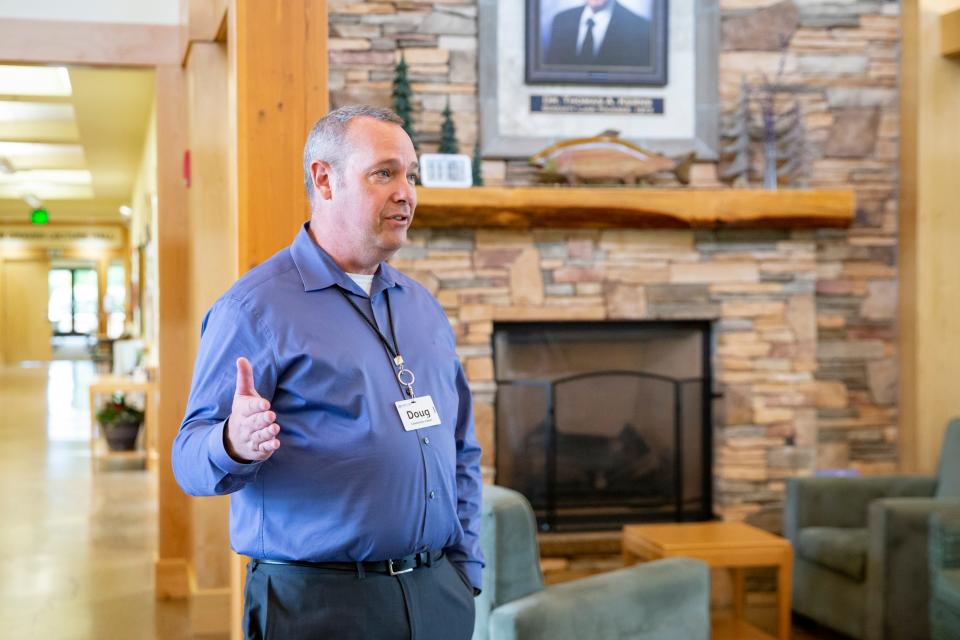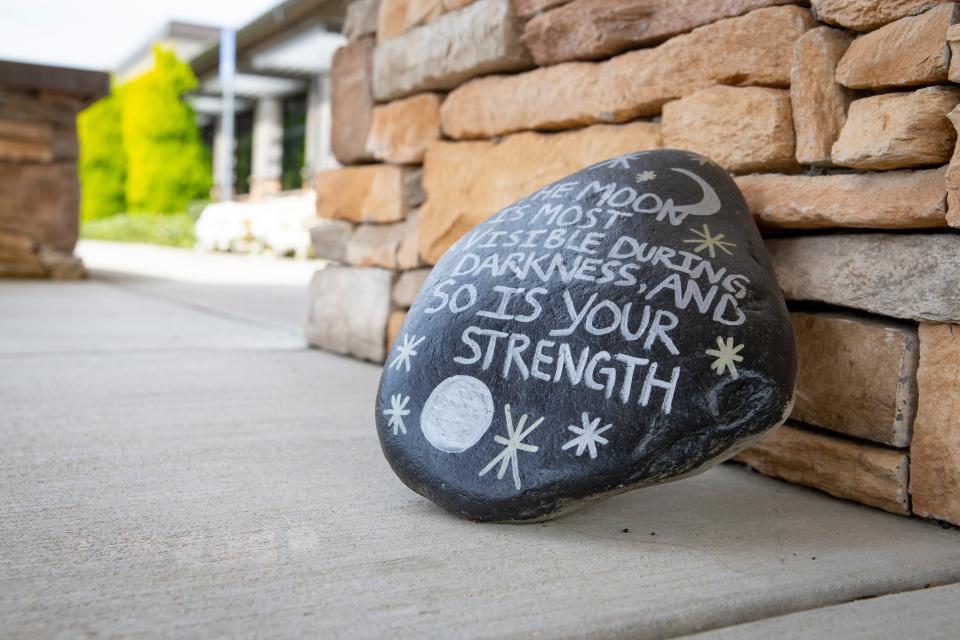As Serenity Lane marks 50 years in Oregon, what's changed for addiction treatment?

In 1973, Dr. Tom Kerns, Sam Graves and Lois O’Connor opened the doors to a center for alcoholics in need of help. Kerns’ father was an alcoholic and died when he was just a teenager, so he had an intimate understanding of just how widespread and destructive the disease could be.
This month, Serenity Lane celebrated 50 years of helping people with substance use disorder. The center has helped more than 68,000 people suffering from addictions and offers a local, nonprofit model in a crowded rehabilitation industry with many profit-driven businesses.
Its first facility opened near the University of Oregon campus. Over the years, it expanded to a 15-acre residential campus in Coburg and seven outpatient offices around the state.
Addiction hasn’t become any easier to tackle. Oregon ranks fifth in the U.S. for alcohol use disorder and seventh for cocaine use. Between 2019 and 2020, alcohol-related deaths in Oregon grew by 73% and drug overdoses increased by 39%, according to Serenity Lane.
Excessive alcohol use remains the third leading cause of preventable death among Oregonians and is responsible for over 2,000 deaths annually, according to the Oregon Health Authority.
What's changed since Serenity Lane opened 50 years ago?
Pete Kerns, a former Eugene Police chief and son of co-founder Tom Kerns, is Serenity Lane’s president and CEO.
He said one of the biggest changes he’s seen since the center opened is the introduction of medication-assisted treatment.
“Before medication assisted treatment became a practice about 20 years ago, people with an opioid use disorder would just try and white knuckle it through detox and the 30 or 40 days of residential care,” Kerns said. “But very few were able to tolerate the cravings they experienced while in treatment, so they left.”

Medication-assisted treatment is the use of certain medications for the treatment of substance use disorders in combination with counseling and behavioral therapies. Some of the medications used in MAT programs include methadone and buprenorphine, which curb cravings without intoxicant effects.
In addition to rehab and support services, Serenity Lane provides free outreach to the community.
Doug Smith is a community liaison for Serenity Lane. He’s worked for the organization for nearly 20 years and is in recovery himself. He provides information for employers and has found an eagerness for understanding, especially in a time when many companies struggle to have adequate staffing.
Past studies from the Substance Abuse and Mental Health Services Administration have estimated as many as 9% of full-time U.S. workers engage in heavy drinking. While employers may have opted to ignore or punish substance use issues in the past, Smith has seen the beginning a shift to a more supportive approach.
“It’s nice to see so many options that are compassionate and empathetic,” Smith said.

Stigma remains a barrier
While substance use trends, pervasiveness and treatment options change, much of what Serenity Lane offers has been constant, Kerns said.
“As much as has changed, things have stayed the same,” Kerns said. "It's a very difficult chronic, lifelong condition. Providing (clients) an opportunity for their brain to heal and also giving them the skills they and their families need in order to sustain their recovery, those are the things that are the same.”
Stigma remains the largest obstacle for people who need help, Kerns said. Shame doesn’t motivate people to get help, it gets in the way of recovery. He recalled one of the program’s alumni who was terrified of the judgment he might receive from others in group settings. As he talked, he found empathy and grace among those who listened to him.
“He realized, for the first time in his life, that he might not be the monster that he thought he was,” Kerns said.
Serenity Lane admits seven days a week and accepts most insurances. For more information, go to serenitylane.org or call 541-262-0788.

Contact reporter Tatiana Parafiniuk-Talesnick at Tatiana@registerguard.com or 541-521-7512, and follow her on Twitter @TatianaSophiaPT.
This article originally appeared on Register-Guard: Serenity Lane marks 50 years of treating substance use disorder

